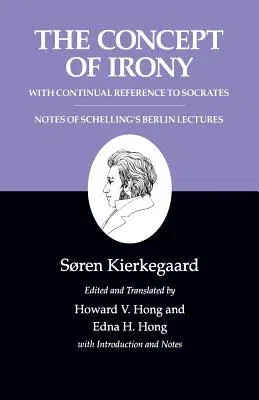Søren Kierkegaard
(Author)Kierkegaard's Writings, II, Volume 2: The Concept of Irony, with Continual Reference to Socrates/Notes of Schelling's Berlin LecturesPaperback, 16 February 1992

Qty
1
Turbo
Ships in 2 - 3 days
In Stock
Free Delivery
Cash on Delivery
15 Days
Free Returns
Secure Checkout

Part of Series
Kierkegaard's Writings
Part of Series
Kierkegaard's Writings (Paperback)
Part of Series
Kierkegaard's Writings, 76
Print Length
664 pages
Language
English
Publisher
Princeton University Press
Date Published
16 Feb 1992
ISBN-10
0691020728
ISBN-13
9780691020723
Description
Product Details
Author:
Book Format:
Paperback
Country of Origin:
US
Date Published:
16 February 1992
Dimensions:
21.44 x
13.84 x
3.78 cm
ISBN-10:
0691020728
ISBN-13:
9780691020723
Language:
English
Location:
Princeton
Pages:
664
Publisher:
Weight:
748.43 gm